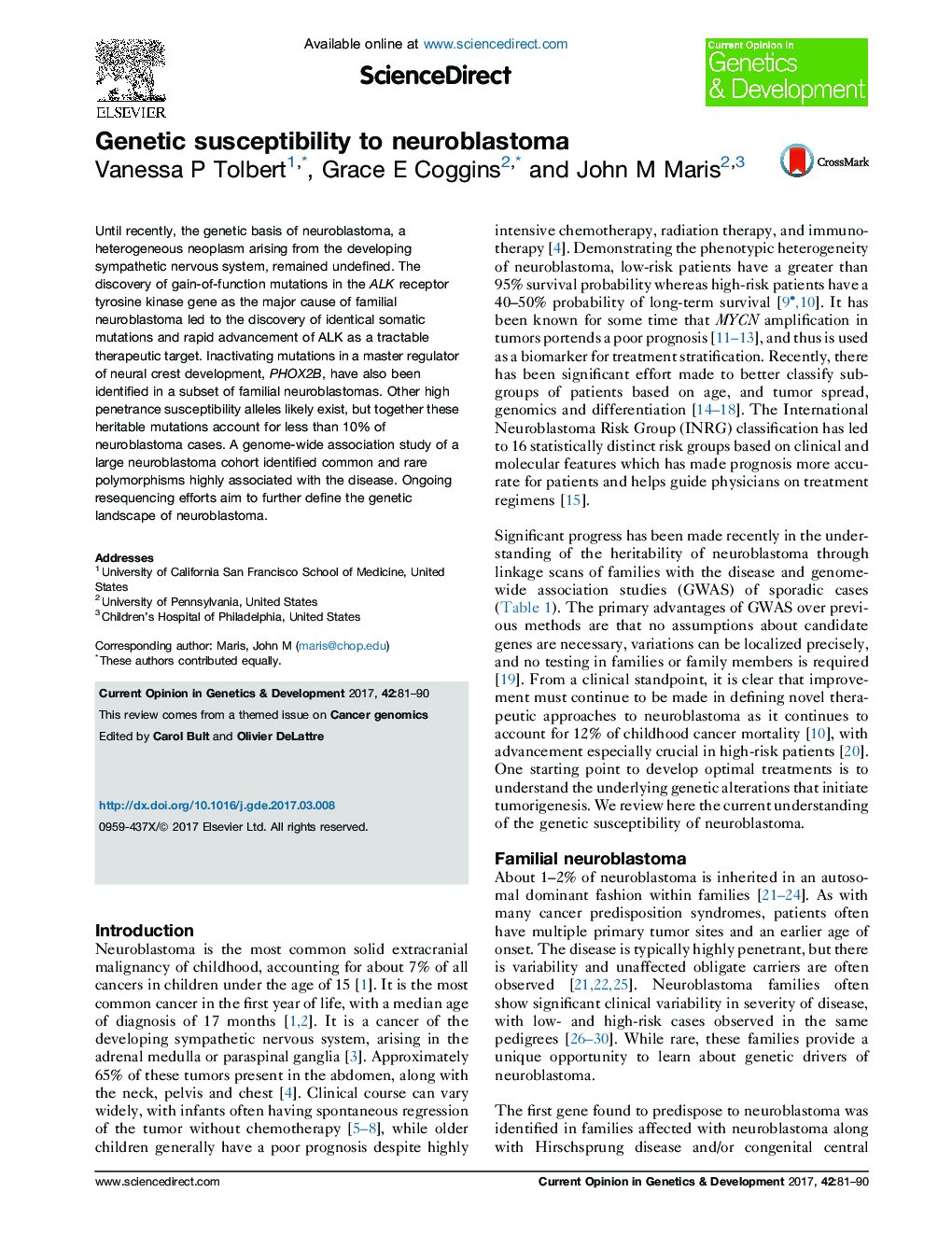| Article ID | Journal | Published Year | Pages | File Type |
|---|---|---|---|---|
| 5585725 | Current Opinion in Genetics & Development | 2017 | 10 Pages |
Abstract
Until recently, the genetic basis of neuroblastoma, a heterogeneous neoplasm arising from the developing sympathetic nervous system, remained undefined. The discovery of gain-of-function mutations in the ALK receptor tyrosine kinase gene as the major cause of familial neuroblastoma led to the discovery of identical somatic mutations and rapid advancement of ALK as a tractable therapeutic target. Inactivating mutations in a master regulator of neural crest development, PHOX2B, have also been identified in a subset of familial neuroblastomas. Other high penetrance susceptibility alleles likely exist, but together these heritable mutations account for less than 10% of neuroblastoma cases. A genome-wide association study of a large neuroblastoma cohort identified common and rare polymorphisms highly associated with the disease. Ongoing resequencing efforts aim to further define the genetic landscape of neuroblastoma.
Related Topics
Life Sciences
Biochemistry, Genetics and Molecular Biology
Developmental Biology
Authors
Vanessa P Tolbert, Grace E Coggins, John M Maris,
